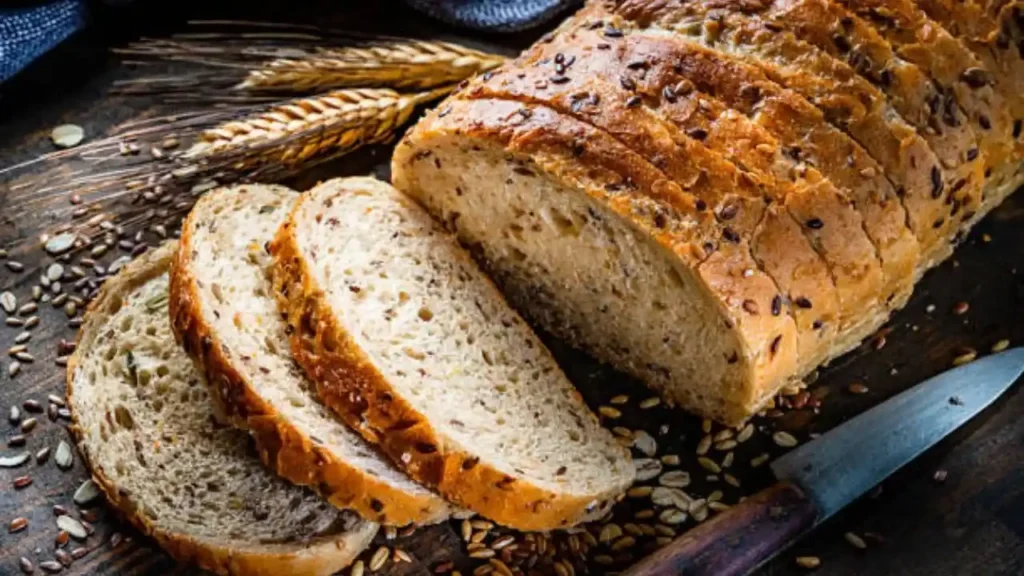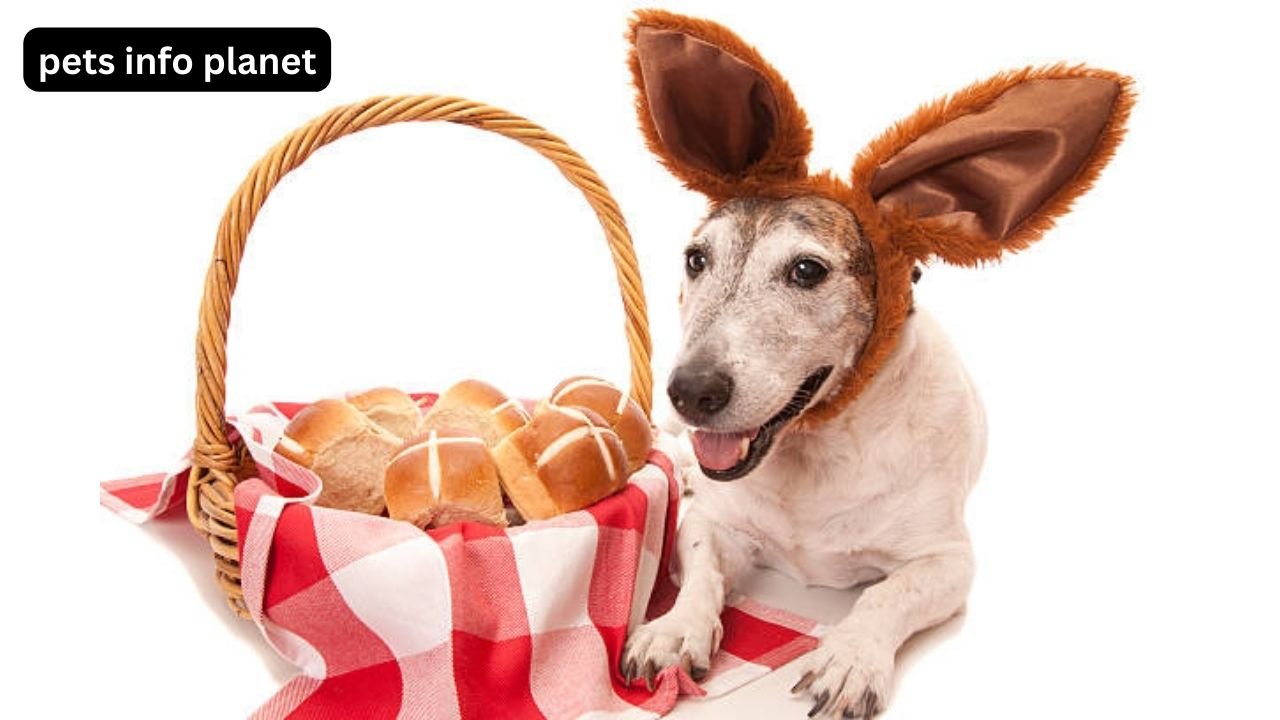“Can dogs eat bread?” It’s a common query among pet owners curious about their canine companions’ dietary choices. Bread, a staple in many households, may seem harmless to share with your furry friend. However, the answer is more complex than one might think.
While plain, small amounts of bread might be generally safe for dogs, certain factors need consideration. From the type of bread to potential allergies, this seemingly simple question unveils a nuanced discussion about canine nutrition. Let’s explore the concerns that come into play when pondering whether to toss that bread crust to your eager pup.
Can Dogs Eat Bread
Yes, but with some critical considerations. Bread itself is not toxic to dogs; in moderation, it can be a safe treat. However, it’s essential to be mindful of the ingredients in the bread and any potential health risks. Some bread varieties contain ingredients like raisins, onions, garlic, or artificial sweeteners like xylitol, which can be toxic to dogs.
It’s crucial to remember that bread should never substitute a balanced and nutritionally complete diet for your furry friend. If you give your dog bread, opt for plain, whole-grain varieties without added ingredients and offer it in small quantities as an occasional treat. Always consult with your veterinarian to ensure that bread suits your dog’s dietary needs.
Is Bread Good For Dogs

While bread is not inherently harmful to dogs, it is not considered a necessary part of their diet. If you give your dog bread, offering small quantities of plain, whole-grain bread without added ingredients or potential toxins is essential. However, it’s always best to prioritize a balanced and nutritionally complete diet specifically formulated for dogs to ensure their overall health and well-being. Consulting with a veterinarian is advisable before introducing bread or new food into your dog’s diet.
How Much Bread Can Dogs Eat
Regarding how much bread dogs can eat, moderation is key. While bread is not toxic to dogs, it should only be given to them in small quantities. Dogs have different nutritional requirements than humans, and too much bread can lead to health issues. The exact amount of bread safe for dogs can vary depending on the dog’s size, weight, and overall health.
As a general guideline, limiting bread intake to less than 10% of the dog’s daily caloric intake is recommended. This means that bread should be given sparingly as an occasional treat rather than a regular part of their diet. It’s important to remember that dogs require a balanced and nutritionally complete diet specifically formulated for their needs. If you have any concerns or questions about feeding bread to your dog, it is always best to consult your veterinarian for personalized advice.
What Kind Of Bread Can Dogs Eat
When it comes to sharing bread with your canine companion, choosing the right kind of bread that is safe and appropriate for their diet is essential. Here are some considerations to keep in mind when selecting bread for dogs:
Opt for whole-grain
When offering bread to your dog, choose whole-grain varieties over refined white bread. Whole-grain bread contains more fiber and nutrients, making it a healthier choice. The fiber content can aid in digestion and promote a healthy gastrointestinal system.
Avoid Harmful Ingredients
Before feeding bread to your dog, carefully read the ingredient list. Avoid breads that contain toxic ingredients such as raisins, grapes, onions, garlic, and artificial sweeteners like xylitol. These substances can be harmful or toxic to dogs and should be strictly avoided.
Plain and Unseasoned
Stick to plain, unseasoned bread without any added flavors or seasonings. Garlic and onion bread, for example, can be harmful to dogs. Please keep it simple and choose bread without any added ingredients or spices.
Homemade Bread
Consider baking your bread for your furry friend. Homemade bread gives you complete control over the ingredients and ensures no harmful additives are included. You can use dog-friendly ingredients such as whole wheat flour, oats, or pumpkin puree to add variety and nutritional value.
Moderation is Key
While bread can be included in your dog’s diet, it should be in moderation. Bread is not necessary for a dog’s diet and should be treated as an occasional treat or snack. Excessive consumption of bread can result in weight gain and potential digestive issues.
Consider Individual Needs
Please consider your dog’s specific dietary needs, including any allergies or sensitivities they may have. If your dog has a known sensitivity to wheat or grains, it’s best to avoid bread altogether or explore grain-free alternatives.
Remember, while dogs can enjoy bread in moderation, it should not replace a well-balanced and nutritionally complete diet specifically formulated for their needs. Always consult your veterinarian for guidance on your dog’s dietary requirements and any concerns regarding specific bread choices.
Can Dogs Eat Bread Crusts

Yes, dogs can eat bread crusts, and for most dogs, they are safe to consume. Bread crusts are not toxic or harmful to dogs. However, there are a few considerations to keep in mind. The rugged and chewy texture of bread crusts may be difficult for some dogs to chew and digest, especially those with dental issues or sensitive stomachs. In such cases, it’s advisable to break the crusts into smaller pieces or remove them altogether before offering bread to your dog.
Additionally, bread crusts are higher in fiber and calories compared to the softer part of the bread. Feeding your dog too many bread crusts can contribute to weight gain and potential digestive issues. Therefore, offering bread crusts in moderation is essential as an occasional treat rather than a regular part of their diet.
As always, it’s best to consult your veterinarian about your dog’s specific dietary needs and concerns before introducing bread crusts or any new food into their diet.
Read More: Can Dogs Eat Peaches
Can Dogs Eat Pita Bread
Yes, dogs can eat pita bread in moderation. Pita bread itself is not toxic to dogs. However, it’s important to note that pita bread is typically made from wheat flour containing gluten. Some dogs may have gluten sensitivities or allergies, so monitoring their response after consuming pita bread is essential.
Additionally, pita bread is high in carbohydrates, so it should only be given as an occasional treat. Permanently remove any fillings or toppings that could be harmful to dogs. As with any new food, it’s best to introduce pita bread gradually and consult your veterinarian if you have any concerns about your dog’s specific dietary needs.
Can Dogs Eat Seeded Bread
While dogs can technically eat seeded bread, it’s generally best to avoid giving it to them. The seeds in bread, such as poppy seeds or sesame seeds, can pose a choking hazard and may be difficult for dogs to digest. Some sources, like those from grapes or raisins, can also be toxic to dogs. Sticking to plain, unseeded bread when sharing a small portion with your dog is safest. Always consult your veterinarian before introducing new food into your dog’s diet to ensure it aligns with their nutritional needs and health conditions.
Can Dogs Eat Bread Sticks

Dogs can eat breadsticks in moderation, but it’s essential to exercise caution. While plain bread sticks without any seasoning or toppings are generally safe for dogs, they should be given sparingly as an occasional treat. Breadsticks can be high in carbohydrates and contain ingredients like salt, garlic, or onions that can harm dogs in large quantities.
Additionally, some dogs may have sensitivities or allergies to wheat or gluten, commonly found in breadsticks. It’s always recommended to consult a veterinarian before introducing new food into your dog’s diet to ensure their health and well-being.
Conclusion
In conclusion, “Can dogs eat bread?” requires careful consideration. While bread itself is not toxic to dogs, it’s essential to consider several factors. Dogs can safely consume plain, whole-grain bread in moderation, but caution should be exercised with ingredients such as raisins, onions, garlic, and artificial sweeteners, which can be harmful.
Bread should never replace a balanced and nutritionally complete diet formulated for dogs. It’s crucial to consult a veterinarian to determine if bread suits your dog’s dietary needs. Ultimately, when it comes to feeding bread to dogs, moderation and informed decisions are critical.

